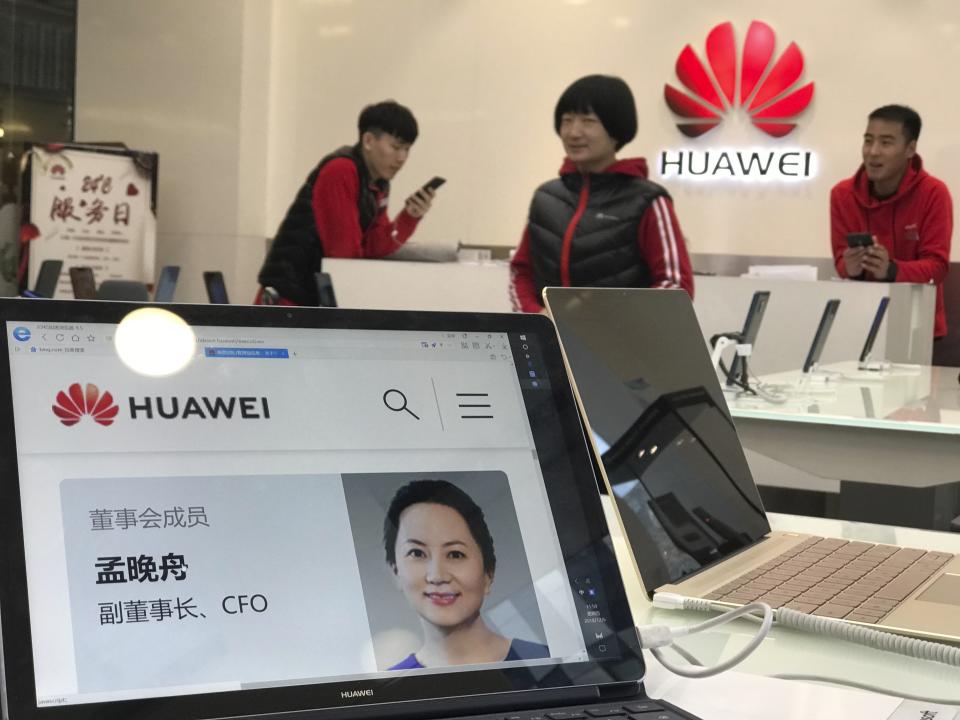Why the Huawei arrest is a huge problem for U.S.-China trade relations
Huawei Technologies Co (HUAWEI) is now trapped in the crosshairs of a trade war.
Meng Wanzhou, the CFO for Huawei Technologies and daughter of the founder of the Chinese telecommunications giant, was arrested in Vancouver, Canada on December 1 and could face extradition to the U.S. over potential violations of U.S. sanctions on Iran.
The arrest, which took place the same day that President Donald Trump and Chinese President Xi Jinping met at the G20 summit in Buenos Aires to discuss trade policy, could have far-reaching implications for the future of U.S.-China relations, as well as for multinational suppliers to the Chinese tech giant.
‘A clear signal that the trade war is escalating to a new level’
The Chinese embassy in Canada condemned Meng’s arrest as a “serious violation of human rights” in a statement Thursday, saying that Meng did not violate any U.S. or Canadian laws. The embassy said it “will pay close attention to developments and take every action to resolutely safeguard the legitimate rights and interests of Chinese citizens.”
The fallout from the arrest complicates the already-tense relationship between the U.S. and China just days after Trump and Xi agreed to a 90-day hold on additional tariffs. Technology has long been the focus of bilateral economic friction, with the U.S. government already having proposed export controls on “emerging technologies.”

“We believe this is a clear signal that the trade war is escalating to a new level,” Deutsche Bank chief China economist Zhiwei Zhang wrote in a note Thursday. “Public opinion in China will likely become more negative in respect to the trade war, and potentially against US companies. The government may find it difficult to tell the public that they have offered significant concessions to the U.S.”
The probability of the U.S. and China reaching a trade deal by March 1 has dropped to 30% from 40%, according to Deutsche Bank’s estimates. “U.S. business interests in China face higher risk than before,” Zhang said.
One of the most successful tech companies in China
While Huawei lacks the high profile of the Chinese BAT technology giants Baidu (BIDU), Alibaba (BABA) and Tencent (TCEHY), the company has made strides to push into artificial intelligence, chipmaking and 5G wireless services. UBS notes that Huawei is the biggest optical vendor by far outside the U.S. The company is the second biggest smartphone maker by market share, according to International Data Corporation.
“Huawei has been widely recognized as one of the most successful technology companies in China,” Zhang noted.
The company is also a customer of a panoply of global technology companies, leaving its suppliers vulnerable to lost revenue in the event of fallout following the arrest. Its list of suppliers includes the U.S. companies Broadcomm (AVGO), Qualcomm (QCOM) and Micron Technology (MU), which each carry between 2% and 6% revenue exposure to Huawei, according to Goldman Sachs data. Chinese electronics giant Foxxconn also counts Huawei as a buyer and carries 11% revenue exposure to the company.
Huawei’s competitors including Nokia (NOK), Ericsson, Cisco (CSCO), Juniper (JNPR) and Ciena (CIEN) could stand to benefit in the event of Huawei share loss of the optical component industry, UBS analyst Tejas Venkatesh wrote in a note Thursday. However, “it would likely take time to play out,” he added.
“By order of revenue contribution, the optical component suppliers into Huawei are NeoPhotonics (40%, $117mn); Lumentum (11%, $137mn); Finisar (11%, $145mn); Inphi (14%, $50mn); Oclaro (11%, $60mn); and Acacia (~7%, $25mn). If Huawei loses share, it could be net negative for suppliers with high share in the account,” Venkatesh said. “But they collectively also sell optics to the potential share gainers. For instance, Oclaro was the largest supplier of optics to Nokia last year.”
The reaction to news of Meng’s arrest was immediate in global markets on Thursday, with futures for each of the three major U.S. indices down more than 1.5% primarily on concern of further complications to U.S.-China trade relations. The Hong Kong Hang Seng Index (^HSI) slid nearly 2.5%, while the Shanghai Stock Exchange Composite (000001.SS) slipped more than 1.5%. Global chip stocks slumped following reports of the arrest, with Advanced Micron Devices (AMD), Micron Technologies and Taiwan Semiconductor (TSM) each down about 3% as of 8:01 a.m. ET.
—
Emily McCormick is a reporter for Yahoo Finance. Follow her on Twitter: @emily_mcck
Follow Yahoo Finance on Twitter, Facebook, Instagram, Flipboard, LinkedIn, and reddit.
Read more from Emily:
Netflix user growth beats expectations, shares spike
Now is a ‘once-in-a-lifetime chance’ to invest in US pot companies, investor says
There are ‘4 headwinds’ facing markets rights now